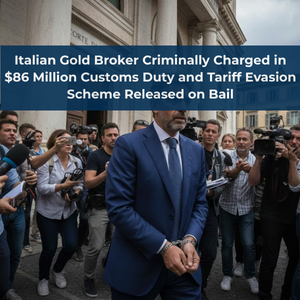
HLA is pleased to announce the declination of criminal charges against a Pennsylvania pharmacy and owner arising from a $6.5 million inventory shortfall. Following a PBM audit referral to federal prosecutors, the case was resolved civilly by HLA's client for a fraction of the claims paid.
Federal Prosecutors Encourage PBM Referrals
The President is responsible for appointing a United States Attorney in each federal district and state. The U.S. Attorney serves as the top federal law enforcement official in each state, and reports to the Attorney General of the United States.
Competition exists among U.S. Attorney's Offices for the biggest and most noteworthy cases. In addition, year-after-year, the Department of Justice prioritizes healthcare enforcement given the amount of money involved.
Accordingly, federal prosecutors often cultivate relationships with private industry, including payors and PBMs, to receive investigative "leads." These leads are investigated by the FBI, HHS-OIG, and other federal agents and investigators.
Compounding is an Audit Risk Factor
Compounding is less prolific now, but federal and state agencies remain vigilant to this practice given their experience with compounding schemes and Tricare fraud in years past.
This case involved a PBM audit that noted discrepancies in compound pain creams, and referred the matter for investigation to the U.S. Attorney's Office for the Eastern District of Pennsylvania.
The Government's Investigation
Following a lengthy investigation, the U.S. Attorney's Office alleged that the Pharmacy, Owner, and business partners had billed Medicare approximately $6.5 million in compound creams even though the pharmacy's records indicated that it had never purchased the APIs in those creams.
In addition, the federal government alleged that Owner had violated laws relating to controlled substances, including Schedule II substances.
HLA's Defense Strategy
Because HLA's founding partner previously served for nearly a decade as an Assistant U.S. Attorney, we understand the risks involved when dealing with the Department of Justice. In this case, we sought to persuade the government that operational errors, not criminal intent, had been the cause of the discrepancy.
Ultimately, the U.S. Attorney's Office agreed with HLA. As a result, Owner was not criminally charged.
Civil Settlement & Resolution
Instead, the U.S. Attorney's Office agreed to resolve the case based on a civil settlement of $2.5 million, a small fraction of the $6.5 million discrepancy at issue. In addition, Owner admitted no wrongdoing, was not excluded, and did not suffer licensing sanctions or professional discipline.
Finally, the settlement resolved all alleged violations of the Controlled Substances Act with no collateral consequences for the Owner.
HLA is Available to Help
If you are facing an aggressive PBM audit with inventory or other discrepancies, call or email before the audit gets referred to law enforcement. If you are the subject of an investigation by law enforcement, we can help stop charges being brought. And if you are the subject of filed criminal charges, we can help resolve the matter before trial or defend your innocence in court.
MORE ARTICLES BY CATEGORY
Darmerica - FDA Issues Warning Letter Targeting GLP-1 API Supply Chain Manufacturer
FDA issued a Warning Letter to Darmerica citing cGMP violations and improper distribution of GLP-1 and peptide APIs. Learn what this means for 503A compounding pharmacies and supply chain compliance.
Read More >>Italian Gold Broker Criminally Charged in $86 Million Customs Duty and Tariff Evasion Scheme Released on Bail
Italian national Claudio Fogale was released from federal jail after his attorney, Anthony J. Mahajan, successfully argued that the evidence was weak and legal requirements were ambiguous.
Read More >>PBM Enforcement Trends Independent Pharmacies Must Prepare for in 2026
Independent pharmacies are heading into 2026 under tighter PBM oversight, more aggressive audit practices, and evolving reimbursement models driven by regulatory pressure and DIR fee reform. To survive in this environment, pharmacies must strengthen compliance, documentation, and inventory controls while partnering with experienced PBM counsel to manage audits, protect reimbursements, and avoid network termination.
Read More >>PBM Audit Triggers: Understanding How Prescription Activity Is Evaluated
Pharmacy benefit managers (PBMs) increasingly use data analytics and algorithmic surveillance to identify “red flag” prescriptions and atypical dispensing patterns, which can trigger audits, recoupments, network terminations, and payment withholds for independent pharmacies. By understanding common PBM risk indicators and implementing strong compliance practices, internal audits, documentation, and timely legal support, pharmacies can reduce exposure and more effectively defend themselves during PBM reviews and appeals.
Read More >>







